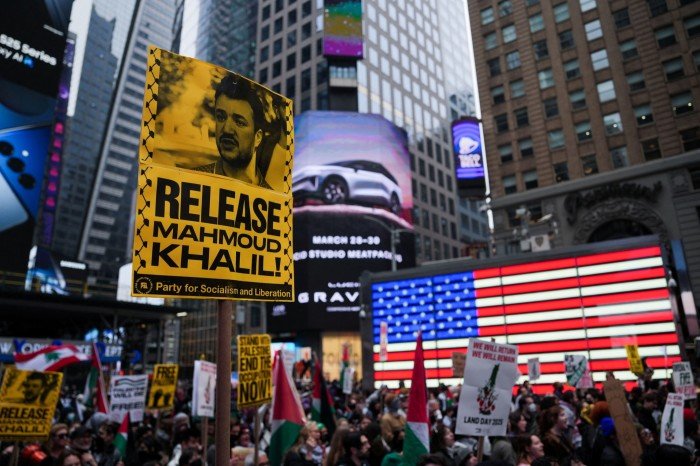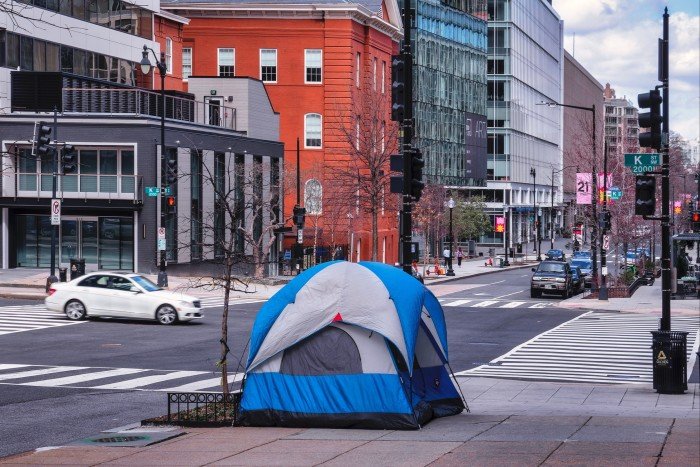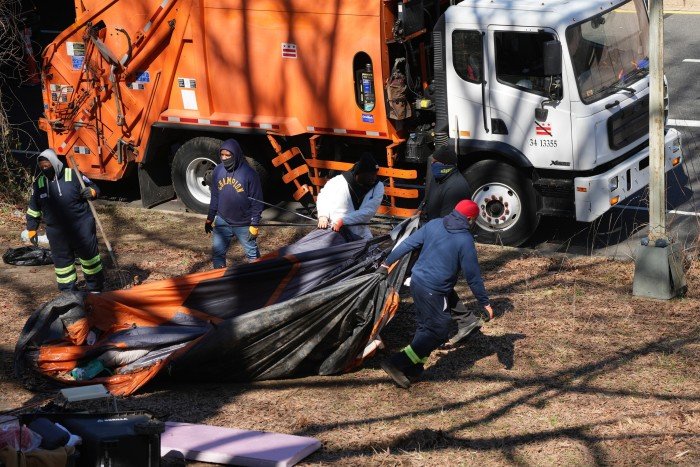US advocacy groups and small legal offices fear Big Law will retreat from civil rights cases after Donald Trump’s executive orders put pressure on firms to choose between ethics and profits.
The Trump administration has launched attacks on perceived opponents in the legal sector, directing federal agencies to suspend security clearances and review or end contracts with the law firms WilmerHale, Perkins Coie, Jenner & Block and Paul, Weiss. He also issued an executive order against Covington & Burling that was narrower in scope.
While some firms have launched challenges, legal juggernaut Paul, Weiss and others have instead negotiated deals that include pro bono work.
The capitulation, and the anxiety of other firms that they may be next, is fuelling fears that the big law firms that have helped fight some of the most high-profile civil rights battles in American history may now retreat to avoid Trump’s wrath.
This would be disastrous for the non-profits and advocacy groups that work closely with vulnerable communities and rely heavily on the resources of large law firms.


If Big Law is “unwilling to take those cases on, that does leave a huge gap”, said Jessie Weber, managing partner at Brown Goldstein & Levy, a mid-sized law firm with a strong civil rights practice. “We have capacity limitations . . . I am concerned about there not being enough attorneys who can really take these matters on.”
Shannon Minter, legal director at the National Center for Lesbian Rights, an LGBT advocacy group, warned the move would be “very harmful” for his organisation, which has less than half a dozen attorneys and depends on law firms’ pro bono support.
“It would also send a terrible message to courts and to the public that we don’t have the support of the mainstream legal community,” Minter added.
A retreat by Big Law would also deal a blow to advocacy efforts on issues spanning criminal justice and immigration to abortion and LGBT rights, as the Trump administration guts civil rights enforcement while taking steps that critics say violate such protections under the law.
The Justice department directed its lawyers in January to halt civil rights litigation. The government is seeking to deport students on green cards linked to pro-Palestinian protests, curb gender transition and clamp down on homelessness.


If large law firms stopped participating in such cases en masse, “unquestionably civil rights would suffer in this country”, said Michael Langley, executive director at Florida Justice Institute, a non-profit law firm focused on rights in the state. “I think that’s the administration’s goal, unfortunately.”
Big Law has a long history of participating in civil rights cases. Paul, Weiss has worked on cases against state abortion laws and racial segregation; Kirkland & Ellis has defended voter rights; Latham & Watkins has advocated for asylum seekers.
Their retreat may have already started. A senior lawyer in the Washington area said they were assessing a case about “really atrocious treatment” of immigrants after a large law firm broke its partnership with a non-profit out of “fear”.
Non-profits warn that a drop in such challenges would have profound consequences for civil rights during Trump’s second presidency.
When the government ordered that transgender women be moved to male prisons and blocked medical care for them, groups including NCLR, alongside law firm Lowenstein Sandler — whose support was “essential”, said Minter — filed a constitutional challenge against the measure, which was temporarily blocked.
If they “had been transferred to male prisons, everyone knew exactly what would happen”, Minter said. “They would be raped. They would be sexually assaulted.”
It remains unclear how many mainstream firms will shun such civil rights cases.
The American Civil Liberties Union, which has brought more than 20 lawsuits against the government since Trump’s return to the White House in January, is “not going to slow down”, said Ben Winzer, a lawyer at the organisation.
A nationwide non-profit with 500 staff attorneys, the ACLU draws from law firms’ resources, but it often litigates cases independently.
“Whether we have assistance from Big Law or not, we are going to continue to bring the same cases that we would have otherwise brought before courts, and we will find people to help us when we need it,” he added.
Winzer does not believe that the entire sector will submit to the president’s wishes.
“I just cannot believe that a few orders targeting a few law firms are going to sideline the entire profession,” he said, pointing out that a federal judge found Trump’s directive against Perkins illegal and halted critical parts of it. Other federal judges have followed suit in separate cases.
Langley, at Florida Justice Institute, said Trump’s broadsides against the legal industry and civil rights are a “reminder that the legal system can create positive change in our communities, but really in the wrong hands can do more harm than good”.
“No one is above the law,” he said. “No one should be beneath it either.”


